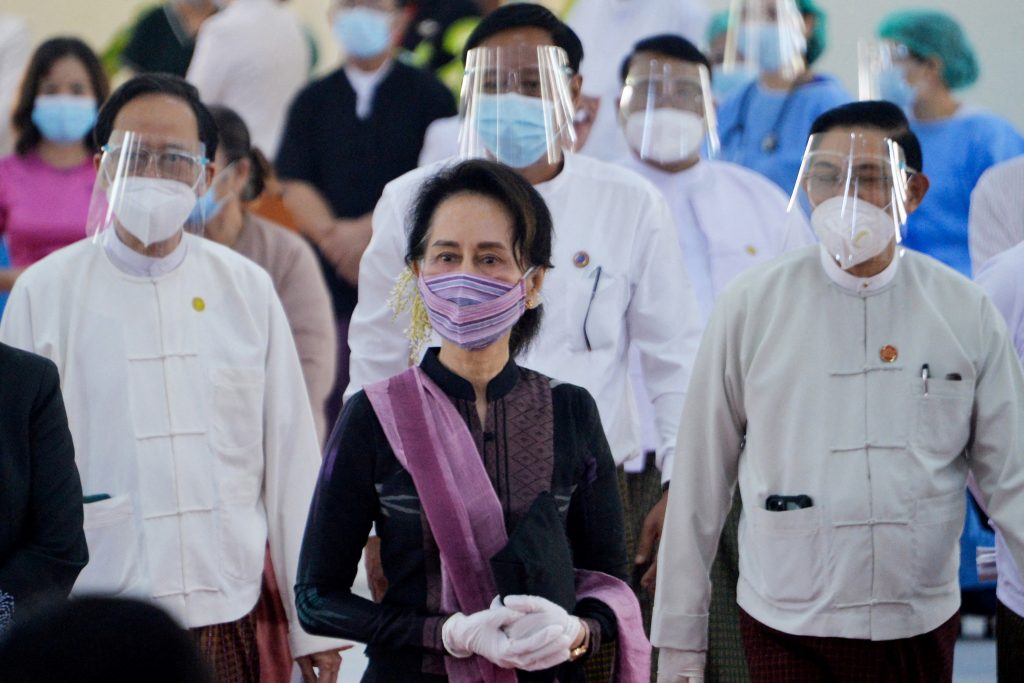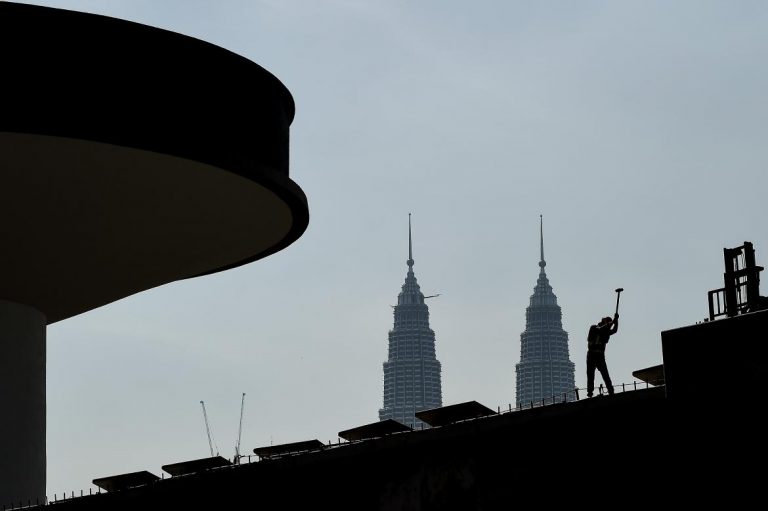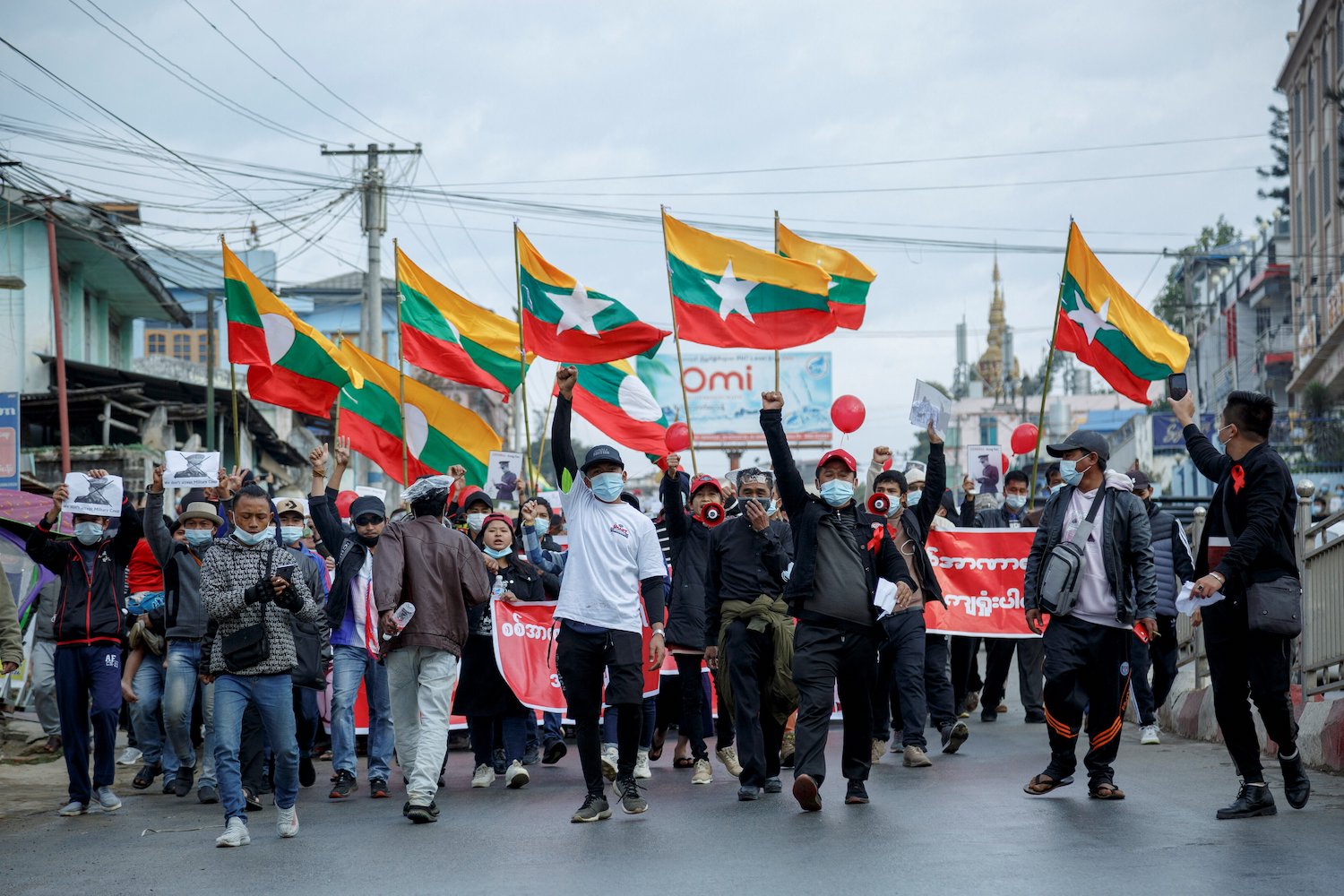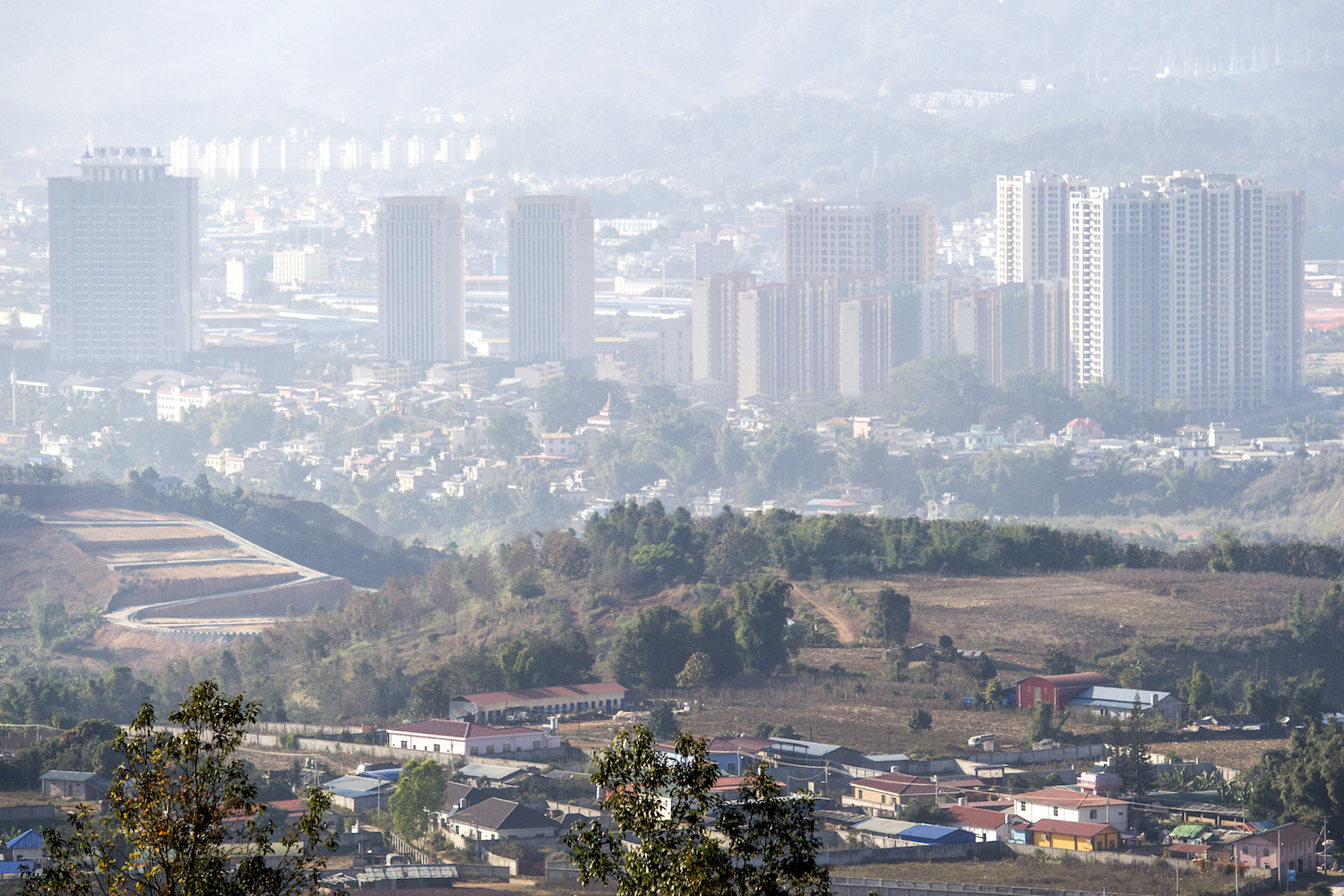The overthrown leader was sentenced to four more years in prison for illegally possessing walkie-talkies and violating COVID-19 restrictions, while awaiting verdicts on corruption charges and accusations of violating the Official Secrets Act.
By AFP
A Nay Pyi Taw junta-controlled court convicted Daw Aung San Suu Kyi of three criminal charges on January 10, sentencing her to four years in prison in the latest in a slew of cases against the ousted civilian leader.
She has been detained since February 1 when her government was forced out in an early morning coup, ending Myanmar’s short-lived experiment with democracy.
The generals’ power grab triggered widespread dissent, which security forces sought to quell with mass detentions and bloody crackdowns in which more than 1,400 civilians have been killed, according to a local monitoring group.
A source with knowledge of the case told AFP the 76-year-old was found guilty of two charges related to illegally importing and owning walkie-talkies and one of breaking coronavirus rules. She was sentenced to two years under the Import-Export Law and one under the Telecommunications Law, to be served concurrently, as well as two years under the National Disaster Management Law.
Junta spokesman Major General Zaw Min Tun confirmed the verdicts and sentences and told AFP Aung San Suu Kyi would remain under house arrest while other cases against her proceed.
The walkie-talkie charges stem from when soldiers raided her house on the day of the coup, allegedly discovering the contraband equipment.
Monday’s sentence adds to the penalties the court handed down in December when she was jailed for four years for incitement under section 505(b) of the Penal Code and under the Natural Disaster Management Law for breaching COVID-19 rules while campaigning.
Junta chief Senior General Min Aung Hlaing cut the sentence to two years and said she could serve her term under house arrest in the capital Nay Pyi Taw.
‘Fear tactic’
December’s ruling drew international condemnation, and the Myanmar public reverted to old protesting tactics of banging pots and pans in a show of anger.
Ahead of the verdict, Daw Manny Maung, a Human Rights Watch researcher, said further convictions would deepen nationwide discontent.
“The announcement of her last conviction resulted in one of the highest days of social media interactions from inside Myanmar, and deeply angered the public,” she told AFP.
“The military is calculating [the cases] as a fear tactic but it only serves to direct more anger from the public.”
Journalists have been barred from attending hearings, and Aung San Suu Kyi’s lawyers have been muzzled from speaking to the media.
Under a previous junta regime, Aung San Suu Kyi spent long spells under house arrest in her family mansion in Yangon.
Today, she is confined to an undisclosed location in the capital, with her link to the outside world limited to brief pre-trial meetings with her lawyers.
Besides Monday’s cases, she is also facing multiple counts of corruption – each of which is punishable by 15 years in jail – and of violating the Official Secrets Act.
In November, she and 15 other officials, including Myanmar’s president, U Win Myint, were also charged with alleged electoral fraud during the 2020 polls.
Her National League for Democracy party had swept the elections in a landslide, trouncing the military-aligned Union Solidarity and Development Party by a wider margin than the previous 2015 election.
Since the coup, many of her political allies have been arrested, with Kayin State Chief Minister Daw Nang Khin Htwe Myint sentenced to 75 years in jail. Others are in hiding.







